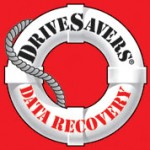Data Recovery Considerations
 (Free Members Only) Ever since personal computers have become a common household item, consumers and businesses alike have been driving the data recovery industry to new heights. Instead of keeping our photo albums, our music, video library, and important documents stored in nice binders or storage racks, we now opt to keep our stuff organized in digital files and folders on our personal computers. Computers have come so far, so fast, that most people just weren’t prepared how to protect their digital clouds of information, and many have lost their life’s work, their media library, even their baby pictures, because they were not backed-up.
(Free Members Only) Ever since personal computers have become a common household item, consumers and businesses alike have been driving the data recovery industry to new heights. Instead of keeping our photo albums, our music, video library, and important documents stored in nice binders or storage racks, we now opt to keep our stuff organized in digital files and folders on our personal computers. Computers have come so far, so fast, that most people just weren’t prepared how to protect their digital clouds of information, and many have lost their life’s work, their media library, even their baby pictures, because they were not backed-up.
By now, most people know that computers break, and finding a technician is a phone call away. But while it may be no big deal to repair the computer itself, what do you do when you find yourself in a data loss situation?
If your important files are not backed-up and you have a computer failure where you suspect your hard drive may be bad, there are a few mistakes that you want to avoid to prevent any data loss. Now just because your computer is acting up, it’s infected, you have no video, or it doesn’t even power-on, it doesn’t necessarily mean that your hard drive is bad. But if you hear any unusual noises from your hard drive, what you do next may make all the difference in getting your data back or not.
Most computer repair shops only offer “limited” Data Recovery Services by using Data Recovery software, and are in no way certified to perform clean-room data recovery services. This is fine for most hard drives without any physical problems, as long as the shop knows and works within their limitations and discloses this to the customer. If you are looking for a computer shop, they are as common as the dry cleaners. And while there are many cleanroom data recovery companies out there, you certainly won’t find one in every city and will most likely have to deal with them through the mail.
Cleanroom Certification
For data recovery jobs requiring cleanroom services, you can probably find many data recovery companies that claim to have a clean work environment by stating they are ISO 9001 certified. Just know that there is a much higher certification known as ISO 14644-1. Certification to an ISO 9001 standard states that a company “claims to apply certain processes”, but it does not guarantee the compliance or quality of the service. This type of certification is essentially just a marketing tool.
On the other hand, certification to an ISO 14644-1 standard states that “requirements integral to the operation and maintenance of cleanrooms have been met.” To receive ISO 14644-1 certification the company must be audited for adherence to standards in the following areas:
- Operational systems
- Selection and use of cleanroom garments
- Training and monitoring of personnel and activities
- Installation and use of equipment
- Requirements for materials used in the cleanroom
- Conformation of the cleanroom’s environment to design standards
To top things off, there is only “one” data recovery company in the world with an ISO 5 (Class 100) cleanroom that has been audited and certified to meet ISO 14644-1 standards.
Of course, cleanroom data recovery services can be expensive, so many people will shop around. And if you were to Google “data recovery” or “hard drive recovery” or any other similar terms, you’ll find quite a few companies claiming to be the BEST. The truth is that there are only about 5 to 10 “real” data recovery companies in the United States. Sadly, this has made it difficult for many customers to make an educated decision about who to choose for their data recovery. It’s no wonder that frugal consumers will hope for the best and just bring their bad hard drive to a local computer repair shop with a tech they can look in the eye.
I can tell you that from my personal experience working in a computer shop, that we knew we were not working out of one of these mult-million dollar cleanroom facilities. But we knew better to NEVER attempt data recovery on any hard drives with physical damage or that made unusual sounds such as scraping, tapping, clicking or humming. It is futile to even try, and a disservice to the customer, unless they understand all the risks and are willing to take a stab in the dark because they are not willing to pay the premium fees a clean room data recovery company would charge. Even so, we would only make these last-ditch attempts on a case-by-case basis.
But normally, we would not even recommend you power-up a hard drive that has obvious physical damage or is making unusual sounds, because you might risk complete and irreversible data loss. Just hang on to the drive, because maybe someday you might just decide to pay an experienced and certified, ISO cleanroom data recovery company their fee.
If You Believe You Have Lost Your Data, Your Next Steps Are Critical!
To avoid the risk of permanent data loss, always follow these important first steps:
- If your drive is making clicking, grinding or whirring sounds, shut down your computer immediately. These sounds could be the result of the read/write heads hitting or scraping the platters. Severe or complete data loss could result.
- Physically unplug the power to the computer before removing the hard drive, and handle the drive carefully. Hard drives are extremely sensitive to static electricity, magnets, physical jarring or jolts.
- If your data is critical, make sure you choose a reputable recovery firm that can properly recover data from physically damaged drives. Even the simplest attempts to recover data on a drive with physical damage could render your data unrecoverable.
- Reputable data recovery companies know that the first recovery attempt is always the best recovery attempt, and should always use the safest methods available to insure your data is not lost from failed repeated attempts.
What To Do When Disaster Strikes:
- If possible, back up your data immediately.
- Do not power-up a hard drive that has obvious physical damage or is making unusual sounds.
- DO NOT use data recovery utility software if the drive is making scraping, tapping, clicking or humming sounds.
- Shut down the computer to avoid any further damage to the hard drive.
- Do not attempt to recover the data yourself on severely traumatized drives, such as by turning the computer off and on, or using over-the-counter diagnostic tools. This might cause further damage which could result in permanent data loss.
- If you’ve lost critical data, a reputable ISO certified data recovery company is your best and safest option.
- Never assume your data is unrecoverable.
Best Practices for Preventing Data Loss
- Everyone should adopt strategies to ensure critical information is protected from corruption and loss.
- Never upgrade any system without a verified data backup.
- Always use up-to-date hardware and software utilities for data security, such as firewalls and virus protection.
- Scan all incoming data for viruses and spyware, including packaged software.
- Use adequate ventilation, such fans and/or air conditioning to keep computers cool.
- Use an Uninterruptible Power Supply (UPS, aka battery backup) to protect against power surges, losses and fluctuations.
- Whenever moving your computer (even a little bit), power it down and take extreme caution when handling it.
- Avoid static discharge when touching or handling the storage media such as hard drives and flash drives, especially in very dry environments.
- Invest in redundant backup systems.
- Routinely follow a structured backup procedure to make copies of all your critical data files.
- Periodically test the backups to verify that data, especially databases and other critical files, are being backed up properly.
- Keep at least one verified copy of your critical data offsite, such as a remote online backup service.
- To reiterate, don’t run any data recovery software if your hard drive is physically damaged, or making any scraping, tapping, clicking or humming sounds.
- Don’t save any further data on your hard drive if you have lost any information, otherwise you might end up saving the new files over the lost information that hasn’t been recovered yet.
- Don’t choose a data recovery company based solely on pricing. There are many companies with fancy websites that include misleading or bait-and switch information. Do your homework and check them out.
Anyway, most hard drives people use are still the electro-mechanical type with moving parts, so they will always be prone to wear-and-tear and even pre-mature failure. Just accept that they will fail someday and will need to be replaced, just like the tires on your car. So to avoid having to go through the stress, headache and expense of a data loss situation, juts keep your data backed-up. I’m not paranoid, but I have disciplined myself to keep my important data backed-up 4 different ways in 3 different locations (one is online), and while having a hard drive go bad would certainly bother me, it would just be a slight nuisance, and not a nightmare.


Leave a Reply